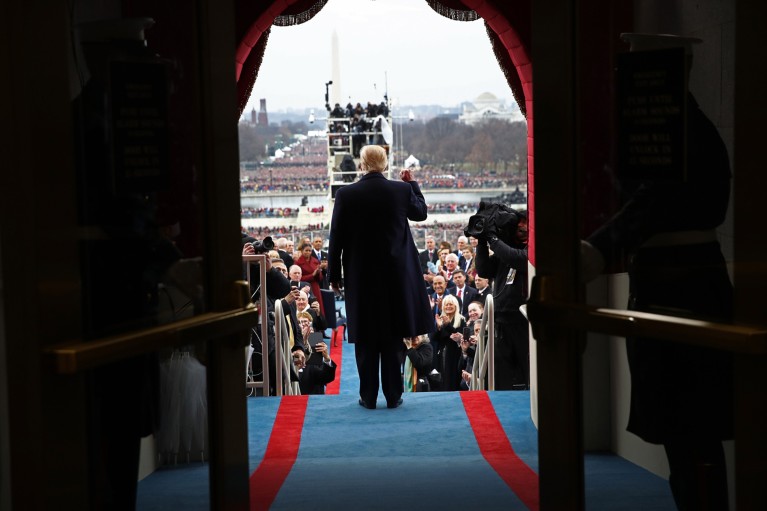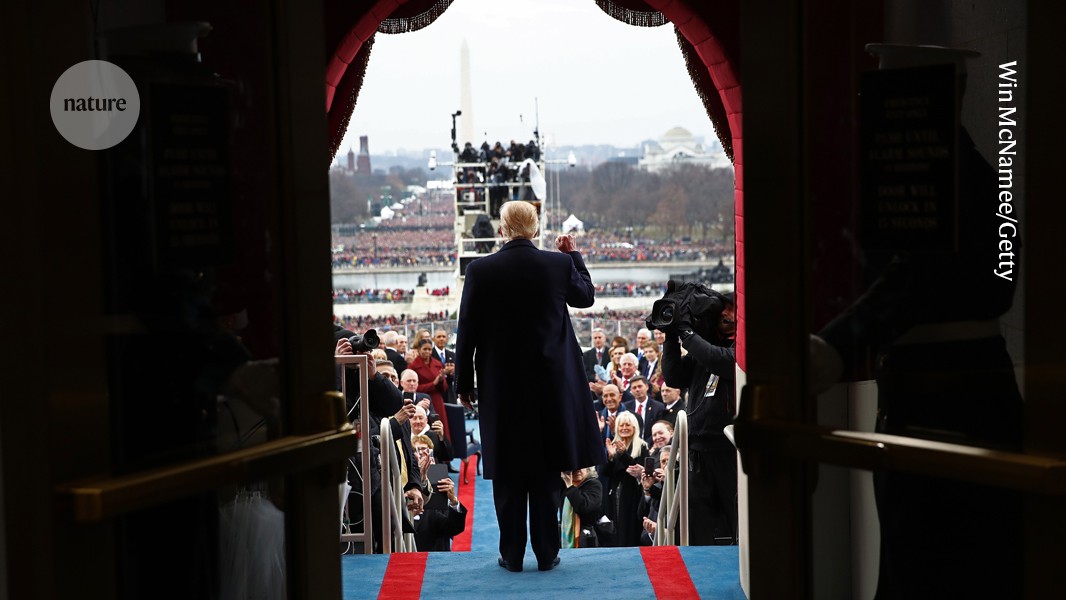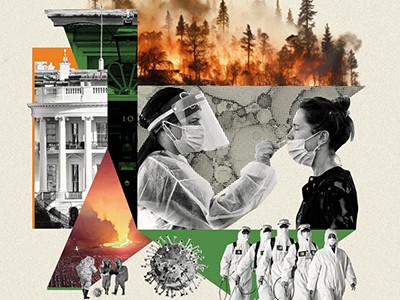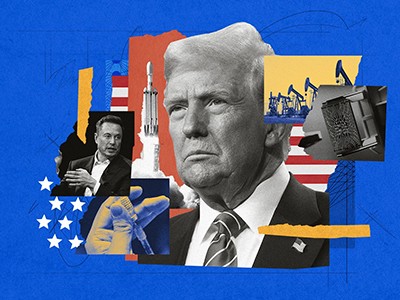
Donald Trump was inaugurated as 45th President of the United States on 20 January 2017.Credit: Win McNamee/Getty
Dear Mr President-elect,
On 20 January, you will be sworn in as the 47th President of the United States. Congratulations on your win. A majority of US voters have placed their trust in you. That is a tremendous responsibility.
We, the editors of the international scientific journal Nature, lay out why, in our view, science is core to an administration’s ability to maintain the country’s health, prosperity and security. And we outline what researchers will need to help your government to succeed in achieving these goals.
Research and innovation are overlapping domains in which the United States has been world-leading for generations. The work of scientists underpins health and prosperity. Take the Human Genome Project: this US$3-billion investment has revolutionized our understanding of diseases. Within a decade of the project’s completion, it had added an estimated $1 trillion to the US economy.
Science could solve some of the world’s biggest problems. Why aren’t governments using it?
As you prepare to return to the White House, we urge you not to lose sight of the need for the US government to continue to provide support for researchers — especially in terms of fundamental science and the opportunity for researchers to collaborate with peers around the world. And we urge you to examine the evidence for what works and what doesn’t before announcing new policies.
Climate and energy security need to be priorities. From a scientific perspective, there is no question that human activities are warming the planet. The overwhelming consensus of researchers is that all nations are vulnerable to severe disruptions from continued burning of fossil fuels.
Disruptive climatic effects are likely to have been a major contributor to the devastating wildfires seen in California this month, to name just the most recent example. Wildfire smoke is a serious health hazard. Many important policies designed to protect people from the effects of climate change, including investment in new energy sources, are in place in the United States. Your administration has an opportunity — and a responsibility — to build on this work.
Scientists are building giant ‘evidence banks’ to create policies that actually work
But the United States cannot tackle climate change or health issues, such as infectious diseases, on its own. The country must continue to work with and, when appropriate, lead other nations through the global organizations and agreements that it is a party to and, in many cases, helped to establish. International accords are complicated and imperfect, but they can be reformed. The alternative — of not having them or withdrawing from them — will put the United States and the rest of the world at greater risk. We urge you to engage. Global cooperation is the only viable approach to global problems.
You have also signalled a desire for government reform, including slashing public-sector spending and improving government efficiency. Some researchers are frustrated with aspects of how the government operates — for instance, how research funds are allocated and how drugs and biomedical products are vetted. One of their concerns is that overly cautious rules might be slowing the roll-out of life-saving treatments.
As your administration seeks improved outcomes, we urge you to consult with the widest possible range of stakeholders, including those who study the problems you are looking to solve, as well as those who have lived experience of them. This will provide the best chance of reaching optimal solutions. Useful insights will come from industry. Companies have huge experience of experimenting with product and process innovation, and they feel the impact of poorly thought-out regulations keenly. We also encourage you to talk to organizations representing consumers; patients’ groups; researchers studying science and ethics, and science and public policy; and the research departments of regulatory bodies themselves.
What Trump 2.0 means for science: the likely winners and losers
Transparency is a non-negotiable principle in modern societies and is central to the verification of scientific knowledge. The ability to work in open and transparent ways is also core to the jobs of the scientists working as career civil servants in various branches of the federal government. These subject specialists are essential to public safety — be it in relation to climate change, infectious disease or artificial intelligence. As Nature reports in a News Feature this week, researchers are concerned about the possibility of civil-service staff being replaced each time an administration changes. Such a change would not serve the interests of people in the United States.
US science has been transformational for the United States and for the world. Research today is a hugely collaborative enterprise. The big discoveries and innovations happen when researchers are able to communicate with, learn from, visit, and live and work with researchers in different countries. This allows for the efficient exchange of knowledge and for the best and brightest to work together no matter where they happen to have been born, giving breakthroughs the best chance of success. We urge you and your administration to ensure that the United States continues to welcome researchers from all parts of the world.
Mr President-elect, science is a self-correcting process in which bad actors and wrong ideas sooner or later get rooted out and fuzzy evidence becomes sharper. That is the joy and the beauty of the method that has made the modern world what it is.
The more you can support science, the better it will be for the United States and its people — and, ultimately, for the planet on which we all depend. If you can do that, it will be a positive legacy for your administration.
With best regards, the editors of Nature.





